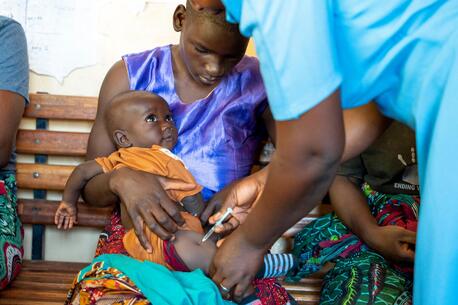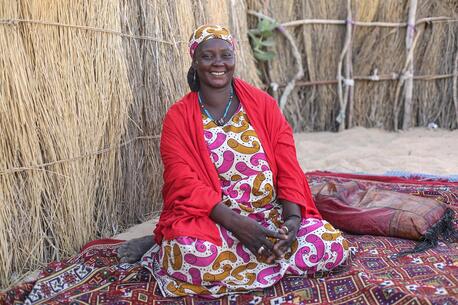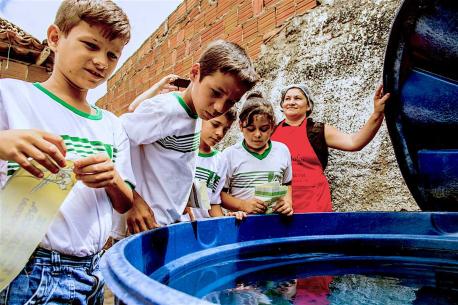
While the Rio Olympics May Be Over, UNICEF Brazil Keeps Fighting Zika
In one Brazilian city, children learn about Zika and mobilize for an innovative community prevention campaign.
Campina Grande, the capital of Paraíba State in Brazil, faced an urgent challenge.
How could the city reach 100,000 households?
How could it reach 100,000 households with information on controlling the Aedes aegypti mosquito, a killer infecting people with the Zika virus, as well as dengue, chikungunya and yellow fever? Manpower was limited, budgets were tight, and there was no time to waste.
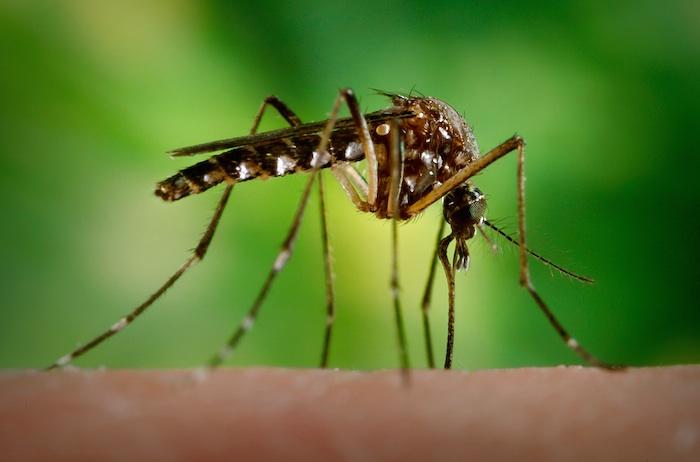
As the primary insect responsible for transmitting the Zika viru, and the viruses that cause dengue and yellow fever, the day-biting Aedes aegypti mosquito prefers to feed on human hosts. ©CDC/Gathany
A School-Based Campaign
“We have 20,000 pupils in Campina Grande’s 120 municipal schools,” explained Ms. Iolanda Barbosa, the city’s Secretary of Education. “We needed to teach our students how to prevent the spread of mosquitos, avoid contracting the Zika virus and dengue, and recognize symptoms of these diseases. We thought they could perform an important community service, [too].”
If every student helped, they could reach every family quickly.
In other words, if each student visited five houses in their neighborhoods, they could reach every family quickly. That’s why combating mosquitos and avoiding their bites is now part of the city schools’ curriculum.
“In music class, children learn traditional Brazilian songs with lyrics changed to singing about the dangers of mosquitos,” said Ana Maria Pereira da Silva, Principal of the Maria das Vitórias Municipal School, in the impoverished Bairro das Cidades on Campina Grande’s outskirts.
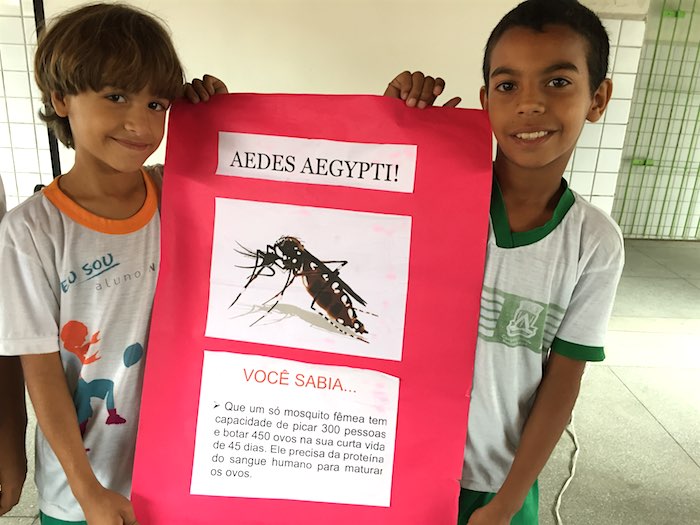
Diverse Zika virus prevention lessons, including posters, theater, songs and quizzes, are integrated into school curricula in Campina Grande where children are now key players in a vector control social mobilization effort. ©UNICEF/UN028257/Page
Local health agents and doctors now speak with children about mosquitos during class and weekly school assemblies. The children also perform skits, with some dressed up as mosquitos and others as health agents.
There are many things we can do to get rid of all the mosquitos.
“There are many things we can do to get rid of all the mosquitos in our homes …” exclaimed 7-year-old Monique. She was dressed in black as a mosquito, with wings on her back and a large silver stinger covering her face, having just performed in front of more than 100 students. “They breed in water, so we always have to cover our water containers and toilets at home.”
Spreading the Word
As part of the Zika prevention campaign, based on a UNICEF Brazil methodology, school children also knock on their neighbors’ doors.
Accompanied by an adult, four students offered informational pamphlets and stickers to a neighbor, Ms. Edinália Pereira.
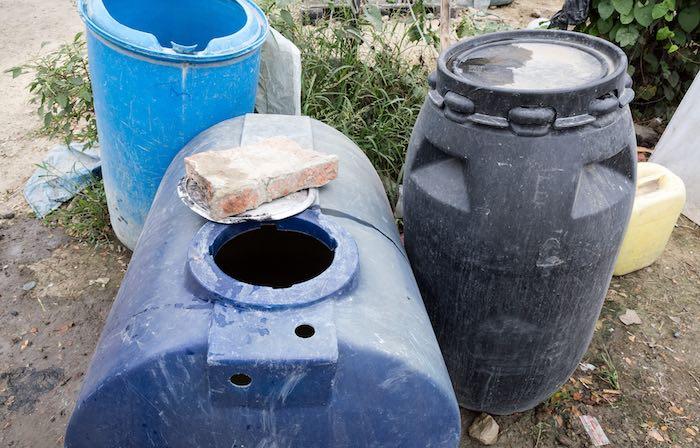
The children of Campina Grande are urging their neighbors to cover water containers like these as a key way to prevent mosquitos from breeding. ©UNICEF/UN025159/Troppoli
“Can we talk to you about preventing mosquitos from breeding in your home?” says 11-year-old Miguel.
“Yes, of course,” says Edinália.
10-year-old Maria Eduarda explained: “Mosquitos want to make more mosquitos, and they need water to do so. But you can stop them. Always get rid of the garbage, keep the house very clean, make sure water bottles are empty and turned upside down, and if you have flowers or plants, cover any extra water under the pot with sand."
I think it's very helpful that children come to our homes.
“I think it’s very helpful that children come to our homes and tell us what we can do to prevent Zika,” Edinália said. “I’ve learned important things from them, and we are now more careful with our garbage, water containers and keeping things tidy.”
When asked how he feels about the impact of his community service, Miguel said, “It feels good because we are doing good things in our neighborhood.”
Making A Difference
The latest statistics show that Campina Grande’s mosquito control efforts are making a difference. This year, the proportion of the city’s homes with breeding sites decreased to 4.3% in July from 6.3 % in April.
*Note: This article is an edited and abridged version of a post that can be read in full here.

